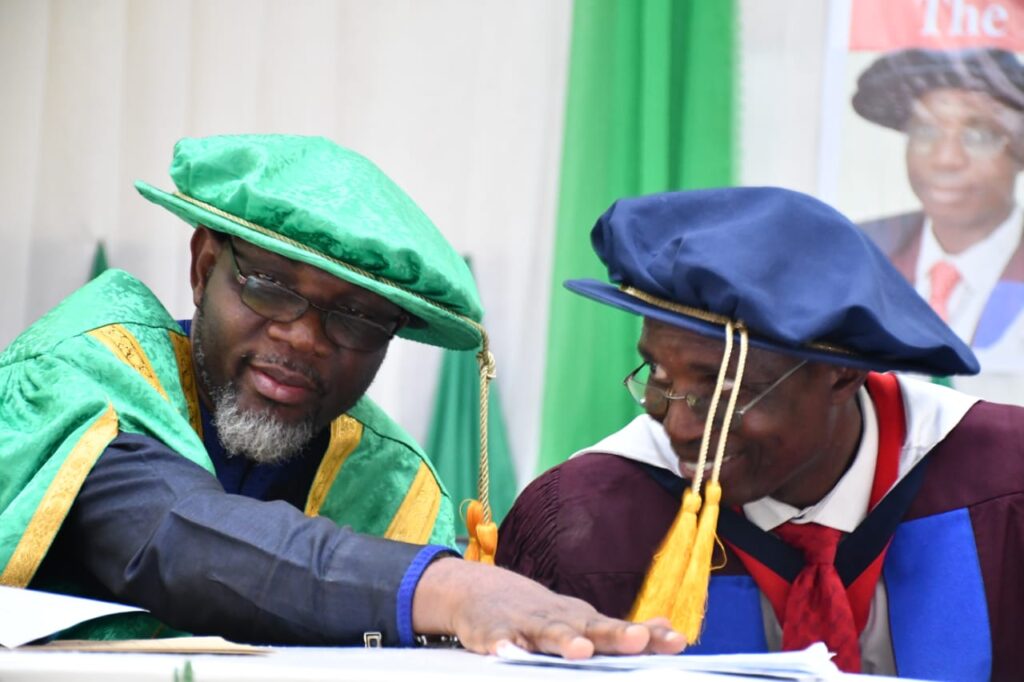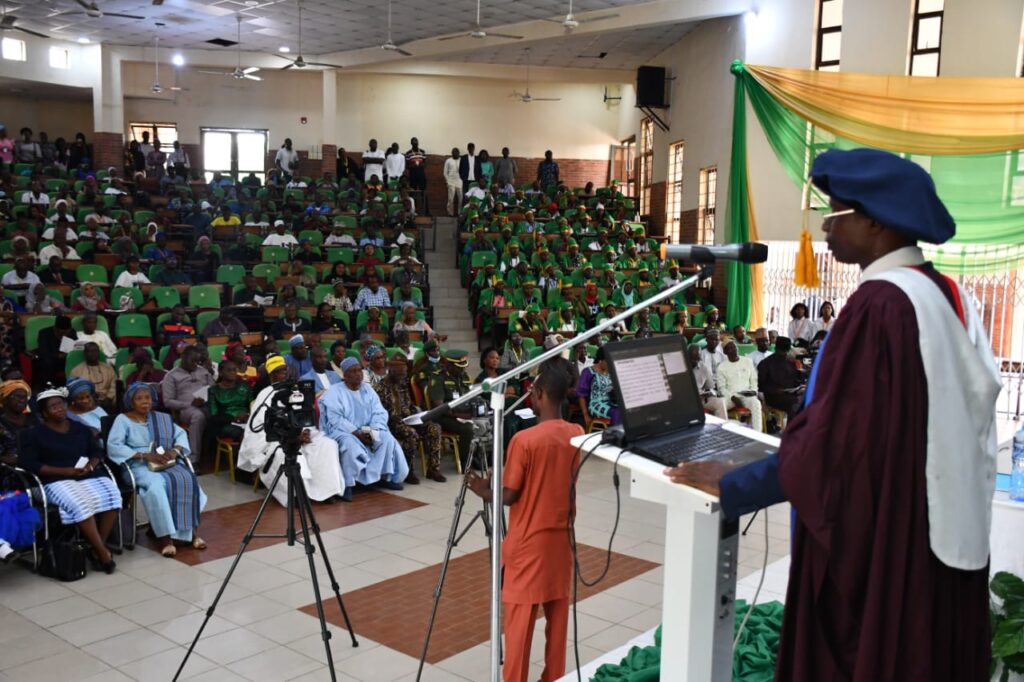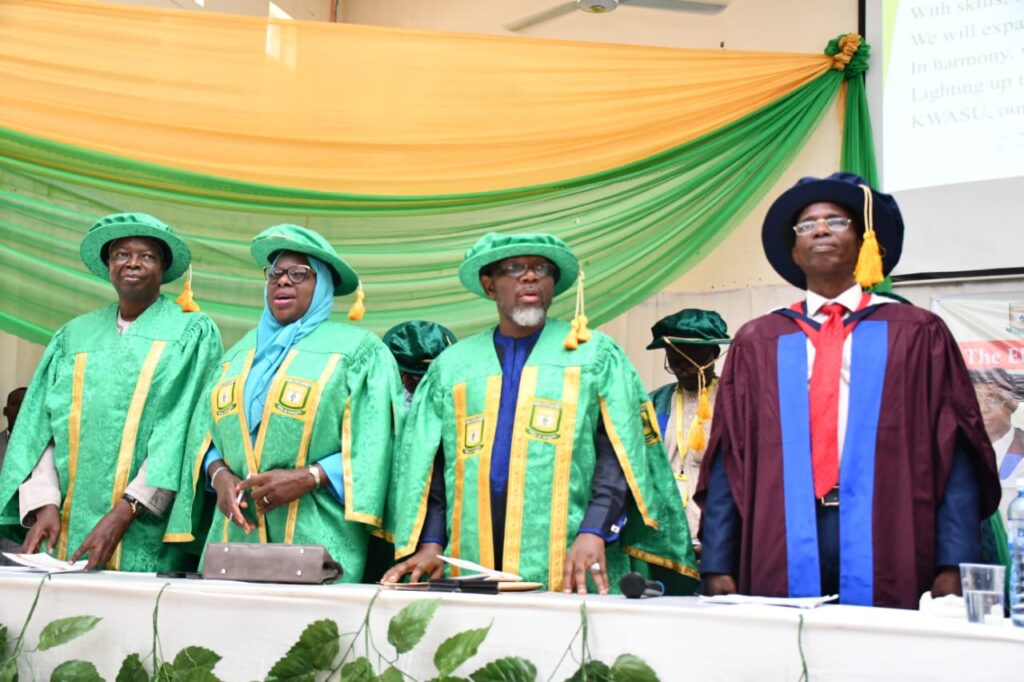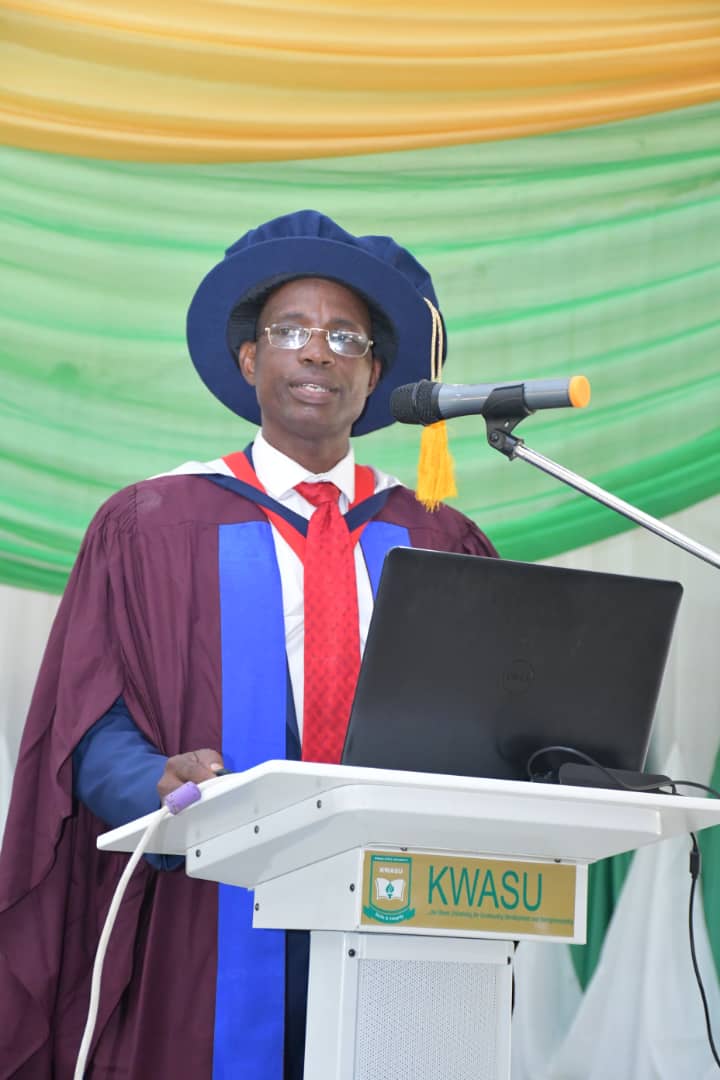…says all non-alcoholic wines have percentages of liquor
A Professor of Industrial and Food Microbiology, Department of Microbiology, Faculty of Pure and Applied Sciences, Kwara State University (KWASU), Prof. Sunday Awe has said there is no non-alcoholic wine, emphasising that no wine is produced without alcohol.
Prof. Awe disclosed this during his inaugural lecture, held on Wednesday, (May 10, 2023), held at the institution Convocation Arena (CVA), Malete.
Awe, who was the KWASU 11th Convocation Lecturer, said there is only de-alcoholized wine, which he said, is produced through a further step on which the. alcohol is removed by spinning cone, vacuum distillation or reverse osmosis.

According to him, “Generally, de-alcholized wines contains less than 1 per cent alcohol and the very fine de-alcoholized wines can have as low as 0.05 per cent but rarely 0.0 per cent”.
He added, ” What people parade as non-alcoholic wines in our shopping malls are actually fruit juice or sparkling drinks in wines bottles with addition of flavours, preservatives and indication of expiry dates, whereas real wine does not contain preservatives and expiry date since the alcoholic content serves as its preservative and the longer it stays the better the taste”.
Awe, whose lecture was titled “FROM THE FIELD TO THE BOTTLES: WORKS OF INVISIBLE CREATURES” recommended that the alcohol in the wine be distilled off and used for other non-consumptive purpose.

Hs also recommended that the locally available fruit should be used to produce wines that are comparable to imported ones, saying that foreign exchange can be saved/earned by producing wines locally for export, instead of importing wines.
He also recommended that sorghum grains should be used as natural substance for the production of anthocyamin under a five day solid state fermentation using Pantoea dispersa strain LMG 2603 as a means of increasing the yield of anthocyanin and will help in solving the problem of anthocyanin deficiency.
He therefore emphasized the need for proper washing of fruits and vegetables using salt water to avoid microbial and parasitic infections before consumption.

The inaugural lecturer also recommended the use of solar disinfection and storage of water in containers for a period of time, adding that it would help in purification of drinking water and help to fight against water bore diseases.









